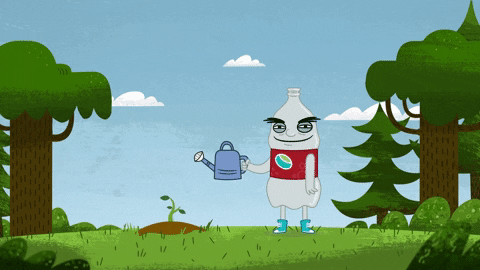Just over a year ago, I reported for my first day at work at 99.co. It was a day of firsts for me — my first job in data analytics, my first time working at a startup, and my first role outside the media industry since stepping into the working world a decade ago.
After 12 months as a data analyst at the property portal, I’m happy to say I’ve survived my first year with a few experiences to share.
Title: Data analyst. Job description: Problem solver
It’s easy to get caught up with the technicalities — discovering new coding methods, exploring functions in the visualisation tool, and ploughing straight into becoming a data report creating machine.
But — and this applies to all jobs, not just those in data — take a step back and recognise that the requester of data wants the numbers because he or she thinks it’ll answer a question. But does the data really provide the answers? Are there other data that gives a more comprehensive understanding of the big picture? Is that even the question that should be asked?
At the end of the day, stakeholders have a problem and they think the data will solve it. I try to go through this thought process so that both sides have a clear picture of the end result. I’m still guilty of neglecting this from time to time, especially when I’m feeling swamped, and it’s something I want to get better at.
Space to grow is more important than job title
Broadly speaking, data analysts handle analytics that are more business intelligence and descriptive, while data scientists use data to do machine learning and make predictions.
I was hoping to snag a role in machine learning after my data science bootcamp but soon realised it was a tough to score one especially given my lack of a STEM degree. Fortunately, my current workplace took a chance on me and offered me a job. Although it was not a data science position, I took it up because it would offer me lots of opportunity to enhance my skills in business intelligence and data visualisation.
On top of that, I also wanted to be part of a fast-growing firm. Indeed, 99.co acquired real estate data provider SRX last year and absorbed its data talent. I’m now part of a team with colleagues who have data science expertise. This has given me more people I can learn from and has also increased the chances of me taking part in prediction projects in the future.
So don’t be hung up on job titles. Instead, consider if the role and the company you’ll be joining can give you the space to grow as a data professional.
Startup life — lean is the name of the game
A flat, non-hierarchical culture. A youthful, friendly vibe. Wearing Bermudas in the office. Yes, these are all true of working in a startup. But if there’s one thing that defines startup life to me, it’s being lean and mean.
Or as a supervisor once put it to me: “In a startup, it’s normal to be the sole person in charge of something.”
Without an abundance of manpower, there’s lots of learning on the job. Not knowing something also doesn’t mean it’s not your job, it just means you have to find out.
Sometimes, people are also called upon to contribute beyond their job scope. Because of my background, my part time gig at 99.co is handling media relations.
On top of that, the sense of survival is ever-present. Monthly town halls include an update on the company’s burn rate and the length of its runway. Unlike entities that have a long history, startups don’t take their existence for granted.
What’s next
Getting a job in data is one thing, keeping the job is another. Now that I’m a year into the the role, expectations of my performance will be higher:
For instance, it’s no longer as plausible to say I’m unfamiliar with certain aspects of the company so I’ll have to double my efforts in familiarising myself with the data from various parts of the business, as well as increase my domain knowledge of the industry I’m in.
I’ll also have to continually assess my career progression using the BATNA (Best Alternative To a Negotiated Agreement) framework so that I’m kept on my toes regarding:
Am I polishing and widening my data skills so that I’m boosting my appeal in the job market and improving my BATNA?
Am I becoming more or less dispensable to my employer, or in other words, is my employer’s BATNA strengthening or weakening?
It’s been a great Year One. Here’s hoping that 12 months down the road I’ll be writing the round-up for Year Two!




